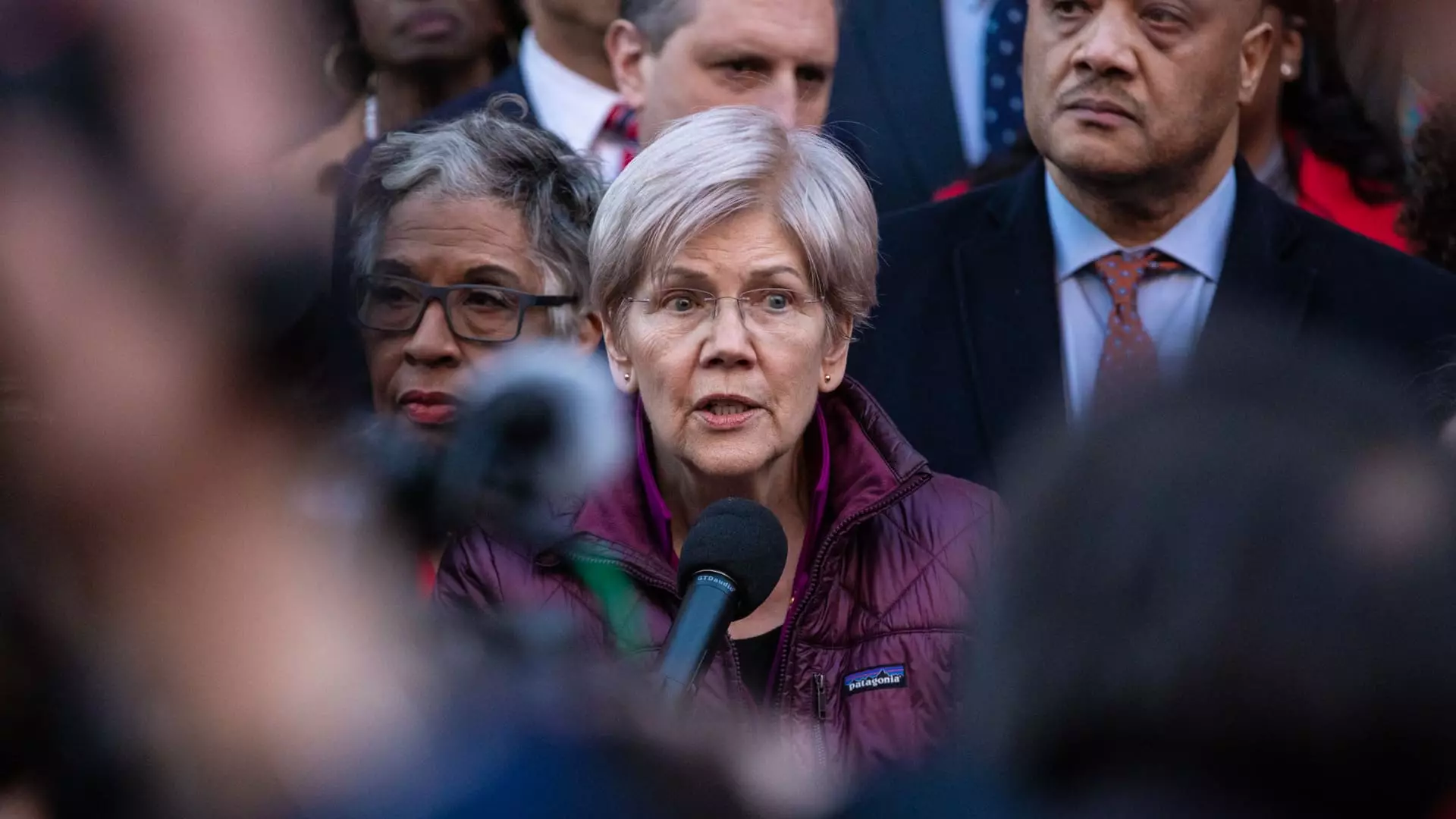Recent governmental measures have provoked significant concern regarding the stability of the U.S. banking sector, particularly following President Donald Trump’s decision to implement layoffs within the Federal Deposit Insurance Corporation (FDIC). As the FDIC plays a crucial role in safeguarding depositors by ensuring the stability and integrity of financial institutions, the reduction of its workforce raises alarms among lawmakers and financial analysts alike. With the Trump administration’s backing, approximately 1,000 positions have been cut at the FDIC, primarily through buyouts and the termination of probationary employees. This strategic workforce reduction aligns with broader efforts to minimize the federal bureaucracy, yet it could have dire consequences not only for the agency itself but also for the banks it oversees.
The Letter from Lawmakers
Senator Elizabeth Warren, along with colleagues such as Sens. Raphael Warnock, Chris Van Hollen, and Lisa Blunt Rochester, have voiced their concerns in an open letter to the FDIC’s Inspector General, Jennifer Fain. Their apprehensions center on the potential threat these cutbacks pose to the stability of the banking system. The lawmakers point out that understaffing can directly plunge the sector into chaos, alluding to the unfortunate failure of Signature Bank in March 2023, an incident now regarded as one of the most significant banking collapses since 2008. In their correspondence, they argue that the diminished capacity for examinations and oversight significantly compromised the bank’s supervisory processes, ultimately culminating in its downfall.
As expressed in Warren’s statement, there exists a palpable worry that the staffing reductions may undermine the FDIC’s ability to perform essential functions. The FDIC’s primary objective is to maintain consumer confidence in the banking system, and any disruptions in their operations could trigger a loss of faith among depositors. The reduction in the number of examiners and other key staff could lead to “supervisory delays” which, as the lawmakers contend, compromise the FDIC’s core mission. When the banking system lacks adequate oversight—”cops on the beat,” as the letter describes it—the risks escalate, not just for individual financial institutions, but for the entire stability of the financial ecosystem.
In response to these requests, Inspector General Jennifer Fain has indicated that a thorough review of the implications of these staffing changes will take place. Her reassurance that the FDIC will adapt its oversight work to better scrutinize the current situation is notable. However, one must remain skeptical about how effective this response will be given the context of rapid changes and downsizing within the agency. It appears that the proactive measures necessary for safeguarding the banking system’s integrity are at risk of being reactive, restrained by bureaucratic constraints and limited resources.
The consequences of these staffing reductions extend far beyond immediate fallout. The banking sector has experienced anxiety following not only the closure of Signature Bank but also the overshadowing impact of the COVID-19 pandemic on financial stability. Fears among depositors are now compounded by the knowledge that the agencies tasked with ensuring the safety of their deposits may themselves be compromised due to staffing shortages. In an era where consumer trust is paramount, the consequences of these changes may reverberate for years, as lawmakers fear a generational shift in how banking services are perceived and utilized.
As these developments unfold, it is critical to maintain vigilance over the actions taken by the FDIC and the broader implications on the U.S. banking system. The events are a clear indication that adequate oversight is not merely a bureaucratic necessity, but a foundational pillar upon which financial stability is built. By properly staffing the FDIC, not only can the integrity of the banking system be maintained, but also the confidence of millions of American depositors can be assured. In sum, this situation serves as a stark reminder of the delicate balance that exists within financial oversight and the potential human costs when that balance is disrupted.

